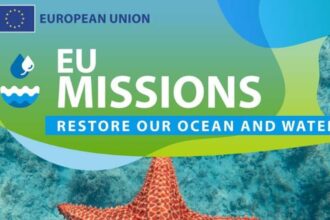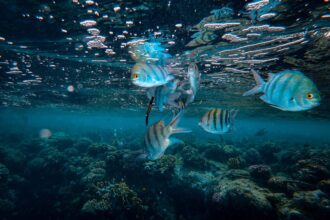B2E Technological Sonar Initiative #28
February marks another journey through the latest innovations and achievements in aquaculture, blue biotechnology and living marine resources. In this edition of B2E CoLAB’s Technology Sonar, you can discover many new developments. From the application of deep learning to the precise detection of white spot virus in shrimp, to advanced technologies for isolating collagen from fish skin and nasal cartilage, this edition highlights the positive impact of technology on the aquaculture sector.
AQUACULTURE
Deep learning to improve the accuracy of white spot virus detection in prawns Deep learning, a tool based on the training of algorithms called artificial neural networks, applied in shrimp aquaculture, can improve the detection and accuracy of diagnoses of the most dreaded diseases, such as the white spot virus.
Mis Peces
Discover more here.
Environmental and biodiversity performance of a novel single cell protein for rainbow trout feed
Seafood has an important role to play to achieve a sustainable food system that provides healthy food to a growing world population. Future seafood production will be increasingly reliant on aquaculture where feed innovation is essential to reduce environmental impacts and minimize feed and food competition. This study aimed to investigate whether a novel single cell protein feed ingredient based on Paecilomyces variotii grown on a side stream from the forest industry could improve environmental sustainability of farmed rainbow trout (Oncorhynchus mykiss) by replacing the soy protein concentrate used today.
PubMed
Discover more here.
A tiny sensor implant could tell us far more about fish health
An implant capable of measuring data, which can be associated with disease and ailments in farmed fish at an early stage. The tiny device may be the most advanced implant ever made for use in fish and is considered groundbreaking in its field.
Fish Farmer
Discover more here.
LIVING MARINE RESOURCES
New advancements show promise by quickly and accurately predicting fish stocks and documenting catches using artificial intelligence
The fishing industry has long been a vital source of food and support for livelihoods for communities worldwide. However, with growing demand for seafood, declining fish populations and other issues, innovative solutions are becoming increasingly crucial.
Global SeaFood Alliance
Discover more here.
MARINE BIOTECHNOLOGY
Formulation and Characterization of Sustainable Algal-Derived Nanoemulgels: A Green Approach to Minimize the Dependency on Synthetic Surfactants
Phycocyanin (PC), a natural protein that is very interesting from the medical point of view due to its potent antioxidant and anti-inflammatory properties, is obtained from algae. This compound is gaining positions for applications in the food industry.
PubMed
Discover more here.
Assessment of tilapia skin collagen for biomedical research applications in comparison with mammalian collagen
Collagen is an important material for biomedical research, but using mammalian tissue-derived collagen carries the risk of zoonotic disease transmission. Marine organisms, such as farmed tilapia, have emerged as a safe alternative source of collagen for biomedical research.
PubMed
Discover more here.
Collagen-including composition derived from fish cartilage
Provided is a technology that effectively uses a collagen-including composition that is derived from fish cartilage.A composition for cartilage protection or a composition for knee joint protection includes, as an active ingredient, this collagen-including composition that is derived from fish cartilage, wherein the collagen-including composition includes type II collagen and type XI collagen. The collagen-including composition preferably has a function of promoting the hyaluronic acid production ability of cartilage cells. Additionally, the collagen-including composition is preferably derived from salmon nasal cartilage.
Espacenet
Discover more here.
Microalgae expressing GLP-2 and uses thereof
The present invention relates to a microalgae product capable of expressing glucagon-like peptide (GLP), preferably GLP-2, and its use in the pharmaceutical or nutraceutical field in the treatment and prevention of disorders affecting the gastrointestinal system, including in particular acute and chronic inflammatory diseases.
Espacenet
Discover more here.





